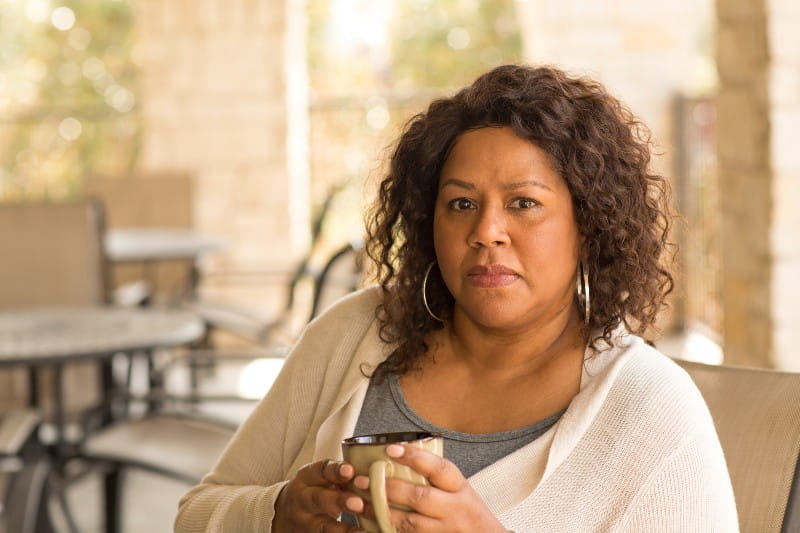How can this be? You thought your periods ended long ago. You’ve been through menopause and moved to the next chapter of your life. But now you’re bleeding again.
“If you’re experiencing any type of bleeding or spotting after you’ve reached menopause, it’s wise to consult your doctor for answers,” says Jerrid Neeley, D.O., OB-GYN with Riverside. “Bleeding after menopause is not normal. You may be having certain medical issues that we can treat fairly easily. In other cases, bleeding after menopause is a sign of cancer, and we can’t ignore it.”
First, determine whether you’ve actually reached menopause. Could your bleeding be due to a period?
According to the American College of Obstetricians and Gynecologists, the average age that women in the United States have their last period is 51.
Usually , women’s hormone levels and menstrual cycles begin to change in their mid-40s. The ovaries get smaller and make less estrogen. This is the perimenopause period. You may get hot flashes. And your menstrual cycle may not happen every month.
“After you’ve lived a full year without having a period, we say you’ve reached menopause. The ovaries have stopped producing eggs. It’s the natural end of menstruation and ovarian function,” says Dr. Neeley.
Your doctor will try to determine when you hit menopause. Some doctors think that the longer it’s been, the greater need for testing to rule out serious medical issues if you’re experiencing bleeding.
What are signs of postmenopausal bleeding?
If you experience bleeding after menopause, it may look pinkish-gray, brown or red. You may have light spotting or a heavy flow, as if you are having a menstrual period.
Causes of bleeding after menopause
Vaginal bleeding can be a side effect of certain medicines, including:
- Blood thinners
- Mental health medications
- Hormone therapy
Certain health conditions can also cause bleeding after menopause, including:
- Infection of the uterus or cervix
- Polyps
- Endometrial atrophy, the lining of the uterus becomes too thin
- Endometrial hyperplasia, lining of the uterus has grown too thick
- Endometrial cancer, cancer in the lining of the uterus or another cancer
Bleeding is a common symptom in women who are later diagnosed with endometrial cancer. Although bleeding after menopause does not necessarily mean you have cancer, doctors do consider it abnormal and recommend you get checked out.
How will my doctor figure out the cause of my abnormal bleeding?
“To determine the cause of bleeding after menopause, we’ll review your medical records and talk about your family health history,” says Dr. Neeley. “We’ll also do a physical exam and may perform certain tests.”
Testing may include:
- Ultrasound to see the pelvic organs
- Hysteroscopy, in which doctors use a flexible tube with a light and camera to see inside the uterus
- Biopsy, removal of tissue from the lining of the uterus for examination under a microscope
- Dilation and curettage (D&C), another method to remove tissue from the uterus
How do doctors treat abnormal bleeding after menopause?
If you do not have cancer, doctors can use a variety of methods to treat your bleeding – depending on the cause.
If bleeding is caused by polyps, doctors can remove them with surgery. If the lining of the uterus is too thin, medications can help. If the uterine lining is too thick, doctors might prescribe a synthetic hormone called progestin, which causes the lining to shed. Or, your doctor may treat a thick uterine lining with a D&C procedure.
If bleeding after menopause is caused by cancer, what are my options?
If you have endometrial cancer, your doctor may suggest a hysterectomy, removing the cervix, uterus, ovaries and fallopian tubes. Your surgeon may also remove lymph nodes and other tissue to test and determine whether the cancer has spread. Depending on the stage of cancer, your doctor may suggest chemotherapy and radiation. Most endometrial cancer can be treated successfully if diagnosed early.
Can I prevent endometrial cancer?
You can’t prevent endometrial cancer, but you can reduce your risk. The American Cancer Society advises:
- Maintain a healthy weight. Overweight women are three times more likely to get endometrial cancer.
- Be physically active. Regular exercise helps to control high blood pressure and diabetes, risk factors for endometrial cancer.
- Ask your doctor about the pros and cons of hormone therapy to reduce your risk.
- Get regular physical exams to treat endometrial issues as they arise and reduce the risk of cancer in the future.
Riverside physicians are here to help; make an appointment today.



